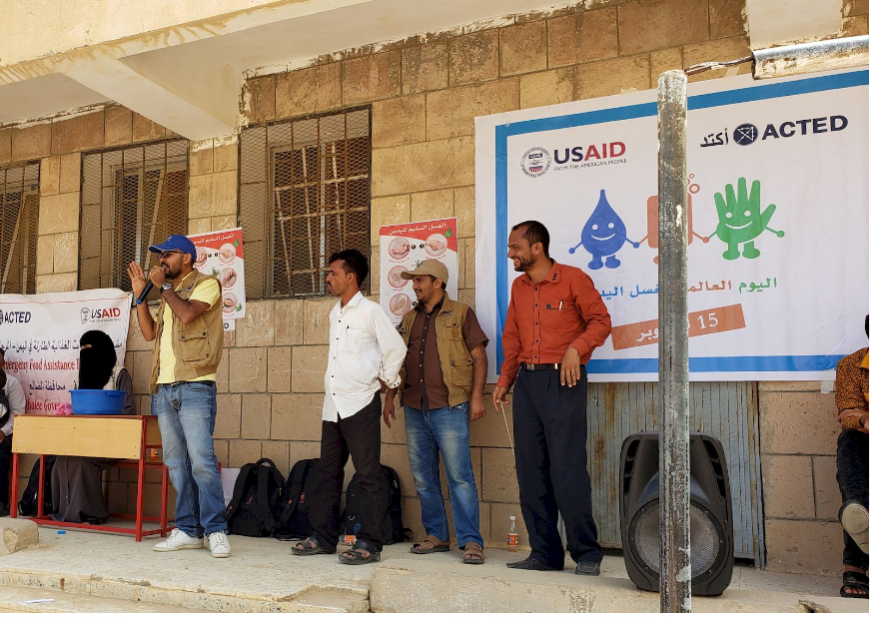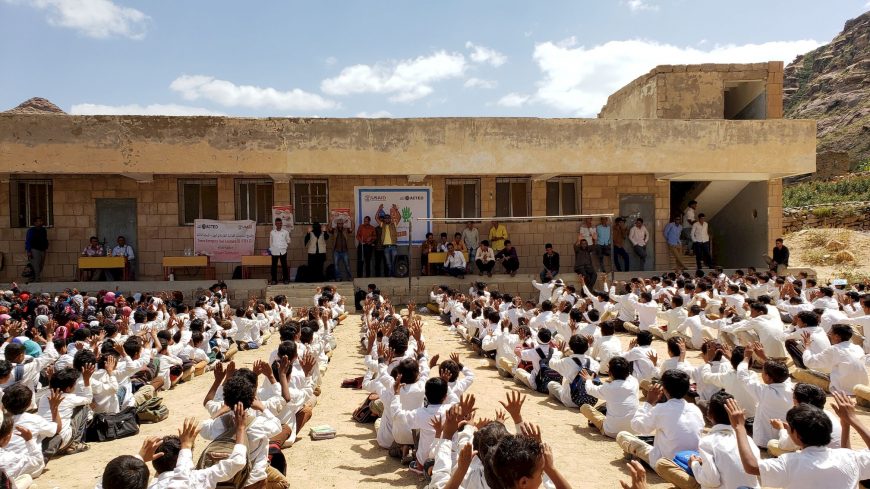With almost 700,000 suspected cases of Cholera recorded since the beginning of the most recent round of conflict in Yemen, the heavy rains of the autumn months are likely to create the conditions which could encourage further outbreaks.
ACTED is working in Al-Dhale’e Governorate to raise awareness of the simple steps which every person can take to minimise the spread of Cholera and other water-borne diseases in their community.

Why is Cholera spreading in Yemen?
In May 2017, the Yemen Ministry of Public Health officially declared that the health system was no longer able to take the necessary steps to prevent a Cholera outbreak.
A number of factors, not all of them conflict-related, created favourable conditions for the spread of water-borne disease. These include: poor community-level awareness on basic hygiene and sanitation practices, the contamination of water sources as heavy rains combined with uncollected garbage, the destruction of basic water and sanitation infrastructure due to the conflict, and fuel shortages which disrupted the operation of water networks, motor pumps and water trucking services.
Yemen is located in a dry and semi-arid region of the Middle East. Unlike other Middle-Eastern countries, Yemen has no rivers. It depends on rainwater as well as underground water sources. According to World bank report 2012 Yemen’s water availability per capita is the lowest in the the world, a situation created in part by its geography, but also years of natural resource mismanagement, poor agricultural practices and population growth.
Global Handwashing Day 2019
Almadhw village is hidden amidst the mountains of Al-Dhale’e. Due to their isolation from the water networks of the nearest city, residents depend upon a rain-fed wells and surface water, leaving them exposed to the whims of seasonal rainfall and especially vulnerable to water borne diseases.
On October 15th, ACTED selected the village to take part in a handwashing campaign as part of Global Handwashing Day 2019, the central theme of which was ‘Clean Hands for All.’
ACTED targeted over 500 students at the Saleh Mohammed School with hygiene messaging which aimed to show how a lack of handwashing leads to illnesses (such as Diarrhoea) which force children to miss school on a regular basis. The campaign also emphasised how and when the children should wash their hands.
The ACTED team also targeted teachers and community leaders during the campaign, sharing information and securing the commitments of the community leader to carry on the positive actions by rehabilitating the school toilets and water network, as well prioritising local solid waste management to ensure these factors no longer create additional risk for members of the community.
